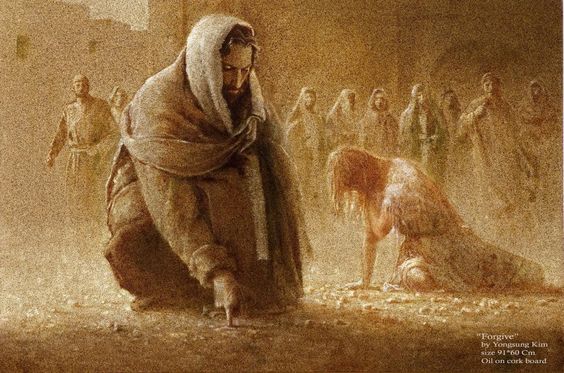“To the Lord our God belong mercy and forgiveness, for we have rebelled against him” [Daniel 9:9, NRSV].
One of the most extraordinarily beautiful aspects of the Christian faith is the call to forgive. It is also one of the most difficult demands of our faith because there can be so many reasons not to forgive.
Forgiveness works in two directions for everyone: to receive forgiveness, and to grant forgiveness.
Begin with the Heart
The starting point is the heart. We must first let God’s forgiveness heal our hearts.
“If we want to move forward in faith,” Pope Francis says, “first of all we must receive the forgiveness of God. We must meet the Father, who is ready to forgive everything and always.”
But why do we need to receive forgiveness? Because forgiveness “heals the heart and revives love” and “only when we are forgiven – when we feel forgiven – do we learn to forgive”. So we must never tire of asking God’s forgiveness, the Pontiff urges.
The Pope draws attention to St Stephen’s forgiveness before he was killed by stoning. One of the first Christians, St Stephen asked God not to charge his murderers with their sin. He acted like Jesus: he loved and he forgave. He forgave, as “the highest expression” of giving.
St. Stephen’s death shows that there is power in forgiveness. Saul, the anti-Christian persecutor who was at Stephen’s martyrdom, would go on to become Paul, the great Christian apostle to the gentiles. Pope Francis described Paul as having been born by the grace of God and the forgiveness of Stephen. We too are born from God’s forgiveness. And every time we are forgiven, “our heart is reborn, it is regenerated.”
The heart is always the key. It starts there. Pope Francis urges us to face any resentment we feel in our hearts by praying and entrusting all evils and injustices done by others to the mercy of God.
A graphic episode of forgiveness and mercy at work
When we glance over to John 8, the episode of the woman caught in adultery, we find forgiveness and mercy at work in a graphic way. Commenting on this episode, Pope Francis says that love bears fruit in mercy and forgiveness (Amoris Laetitia, 27).
By protecting the woman against the blood-thirsty crowd, poised as they were to stone the woman to death, Jesus put himself and his reputation on the line, risking all to protect the woman from harm. He knew that everyone was sinful. He had forgiven them all. By his actions, he had certainly forgiven the woman before the episode began. In the end, this forgiveness as part of God’s mercy gets verbalized when Jesus asked, “Woman, is there no one to condemn you? … Nor will I condemn you.” He touched her heart with forgiveness, and released her to a new life of possible freedom from sin.
The key for our reflection here is Jesus’ pastoral approach. He knows that life is difficult. he knows that people experiencing life difficulties need understanding, a gentle touch, and a kind word. So in encountering this woman who is experiencing life difficulties, and wounded in many ways, Jesus’ pastoral approach takes two steps.
First, he does not begin with rules, doctrines and canon law. Instead, he begins with love, forgiveness, and pastoral care.
Why? So that the woman may have a chance to live, to breathe, to change and grow, as a child of God that she is, just like everyone else.
Jesus knows that to begin with judgment, doctrine and law, is to condemn and consign people to hell at the outset. How can you give life, and life in abundance [John 10:10]? No. Jesus starts with love, forgiveness, mercy and from there releases her, as a second step, to a new place, a better place, a place filled with possibilities of a new and moral life.
That is why Pope Francis says some priests should not hear confessions. Instead of listening to penitents, they terrorise them. Instead of accompanying wounded souls, they condemn and judge. Instead of reconciling troubled minds and spirits, they deepen existing anger and cause further estrangement. Instead of giving comfort to sufferers, they accuse and compound their hurts. They have all but turned the confessionals into “torture chambers”. They drive people away from the church. They contradict God’s mercy and forgiveness, and ought to be taken off the work of hearing confessions and assigned to some desk job in a quiet corner!
A Word on the Holy Door
Understandably, Pope Francis in this Mercy Jubilee Year calls for a conversion of heart by all in the church.
Walking through any of the holy doors should be a sign of true conversion of our heart.
“When we go through that door, it is good to remember that we must also open wide the doors of our heart,” said Francis, suggesting people can even stand before the holy door and ask: “Lord, help me to open the doors of my heart!”
“The holy year won’t be very effective if the doors of our heart do not let Christ enter, who pushes us to go towards others, to bring him and his love,” said the pope.
“Therefore, as the holy door remains open because it is the sign of the welcoming that God himself reserves for us, so also our doors — those of the heart — must always be open to not exclude anyone,” he said. Not even those who have hurt us.
Copyright © Dr. Jeffrey & Angie Goh, May 2016. All rights reserved.
You are most welcome to respond to this post. Email your comments to jeffangiegoh@gmail.com. You can also be dialogue partners in this Ephphatha Coffee-Corner Ministry by sending us questions for discussion.

